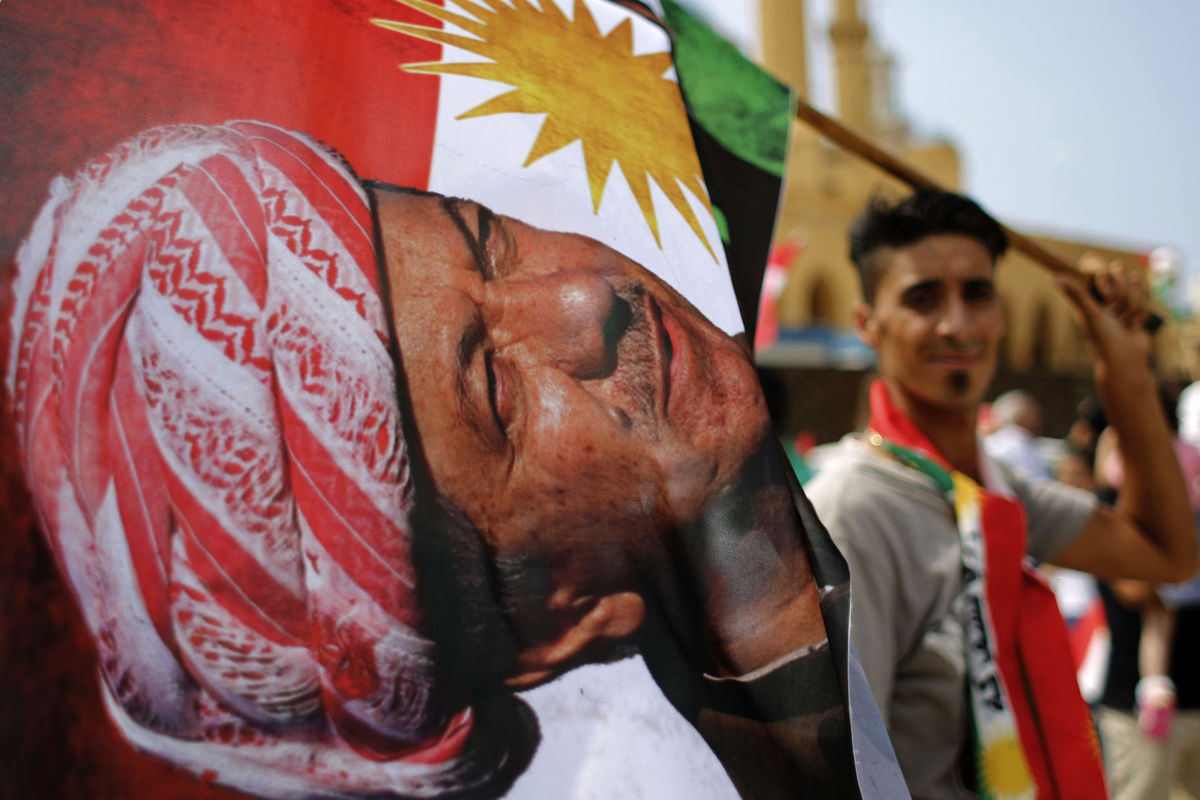Iraq's top court suspends Kurdish region's independence vote

Iraq's top court on Monday temporarily suspended the northern Kurdish region's referendum on independence that's due next week, a decision that put further pressure on the Iraqi Kurds to call off the controversial vote.
The Supreme Court in Baghdad released a statement, saying it "issued a national order to suspend the referendum procedures ... until the resolution of the cases regarding the constitutionality of said decision."
It was not immediately clear if the local government in the semi-autonomous Kurdish region would abide by the court's ruling.
The vote was due on Sept. 25 in the three provinces that make up the region, as well as disputed territories claimed by both the Kurdish region and Baghdad.
The central government in Baghdad, regional leaders and the United States — a key ally of Iraq's Kurds — have all called on the Iraqi Kurdish region to hold off on the vote, fearing it could contribute to instability as Iraqi forces continue to battle the Islamic State group.
The Kurdish region has repeatedly ignored calls from Baghdad that the vote is unconstitutional.
Iraqi Prime Minister Haider al-Abadi told The Associated Press in an exclusive interview on Saturday that Iraq is prepared to intervene militarily if the Kurdish region's referendum results in violence.
If the Iraqi population is "threatened by the use of force outside the law, then we will intervene militarily," al-Abadi said.
The leaders of the Iraqi Kurdish region have said they hope the referendum will push Baghdad to come to the negotiating table and create a path for independence. However, al-Abadi said such negotiations would likely be complicated by the referendum vote.
Masoud Barzani, the president of the Kurdish region, has threatened violence if Iraqi troops or Shiite militias attempt to move into disputed territories that are now under the control of Kurdish fighters known as peshmerga, specifically the oil-rich city of Kirkuk.
Iraq's Kurds have long held a dream of statehood. They were brutally oppressed under Saddam Hussein, whose military in the 1980s killed at least 50,000 of them, many with chemical weapons. Iraq's Kurds established a regional government in 1992 after the U.S. enforced a no-fly zone across the north following the Gulf War.
After the 2003 U.S.-led invasion ousted Saddam, the region secured constitutional recognition of its autonomy, but remained part of the Iraqi state.
In related developments on Monday, Turkey's military said it kicked off a previously unannounced drill near its border with Iraq — a clear show of force ahead of the Iraqi Kurdish vote. The exercises started Monday near the town of Silopi, close to the Habur border gate between Turkey and the Iraqi Kurdish region.
Turkey has a large Kurdish minority and is battling Kurdish insurgents. It's opposed to the Iraqi Kurdish moves for independence and has also urged Iraqi Kurdish leaders to cancel the vote.
The military did not provide details on the drill.